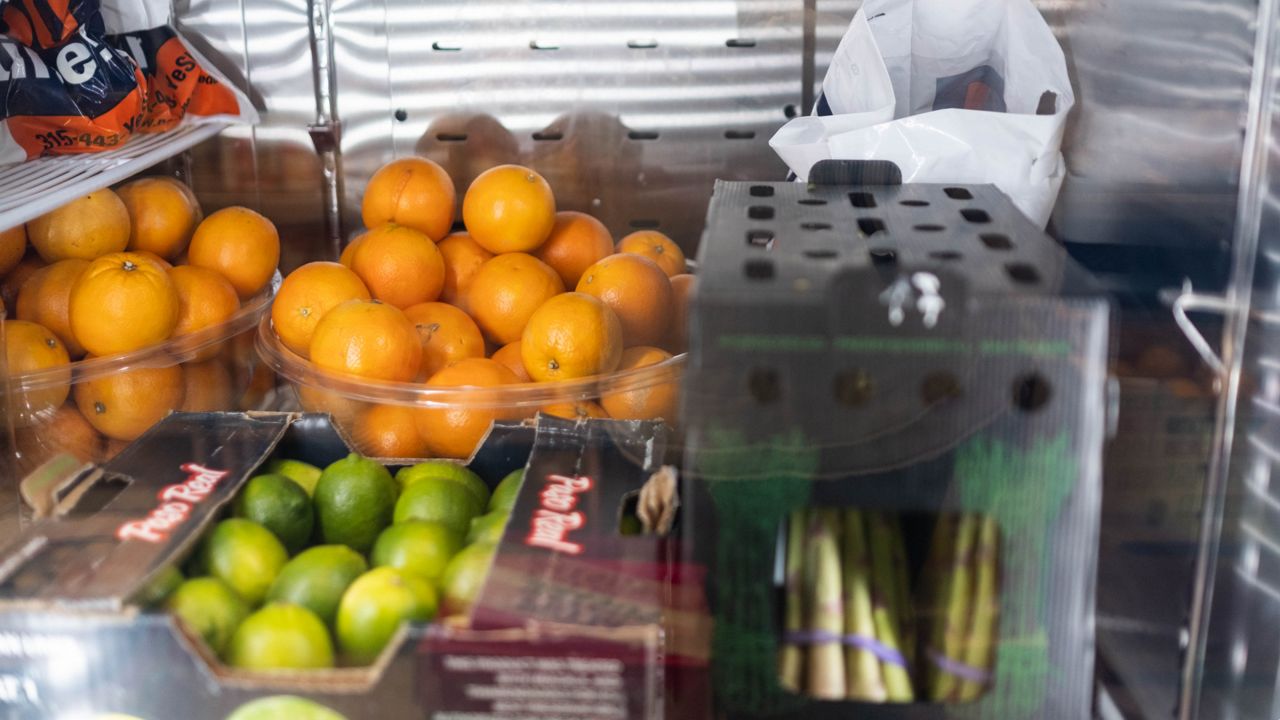An audit of a state-run program that sends surplus food from farms to people who are struggling with food insecurity found agencies managing it may have limited funding for certain food bank purchases, benefiting fewer farmers and needs better oversight, according to state Comptroller Tom DiNapoli's office.
Nourish New York originated from the beginning of the COVID-19 pandemic when schools and restaurants had to shut their doors and the demand for products like milk plummeted. With nowhere to go with their products, many farmers were forced to dump hundreds of thousands of gallons of milk while at the same time thousands of New Yorkers lined up at food banks, many for the first time, leaving empty shelves and concerns over a possible food shortage.
In response, former Gov. Andrew Cuomo launched the Nourish New York initiative in April 2020, which helped food banks purchase excess food from farmers. Gov. Kathy Hochul signed legislation in 2021 that permanently codified the program into law and was allocated $147 million in funding through March 2023.
Regional food banks contract with state Department of Health to receive these funds and allocate them to local soup kitchens, food pantries, food banks and other community-based organizations. According to the comptroller's audit, the DOH approved $22.7 million in purchases from May 2020 through March 2022 despite not having adequate documentation to support the food products were grown in New York, which is required under Nourish NY.
The state Department of Agriculture and Markets could not always verify the source of the farm products that were bought, which is their responsibility, DiNapoli said. In a review of 165 food purchases totaling almost $1 million from distributors, neither the agency nor the food relief organization could provide the required documentation.
The audit also found the DOH gave little guidance to food relief organizations on what costs Nourish New York would cover and approved over $8.9 million in administrative reimbursement that could not be verified with documentation.
Auditors concluded the DOH needs to improve its oversight or funds could be improperly used for expenses not associated with Nourish New York.
“The state’s Department of Health and Department of Agriculture and Markets need to provide stronger oversight to help the program reach its full potential," DiNapoli said in a statement Thursday. "Greater and clearer guidance to food relief organizations will enable them to get the funds needed to buy New York-made farm products and should help increase the number of participating farms.”
The audit also found that vendor participation could be increased in the Nourish NY program. The North County had the fewest participants in the program of any region statewide with 16 while the Capital Region had the most participants with 102.
"The Department of Agriculture and Markets (Department) is committed to continued collaboration with the Department of Health (DOH), the agricultural community, and the Nourish New York contractors to ensure the ongoing success of the program, as well as compliance with the legislative intent of the program," the Department of Agriculture and Markets said in a statement in the audit.
The DOH also has a statement in the audit:
"DOH is committed to working with Ag&Mkts, OSC and our Nourish NY contractor awardees to provide the training, technical assistance, oversight and monitoring to ensure compliance with legislative intent and successful outcomes for Nourish NY. DOH proactively began improvement efforts in these areas as part of the process of transitioning Nourish NY from a Governor's Executive Order emergency COBID response to a permanent program now established in state law."
Last month, Hochul signed an executive order that gradually increases the percentage of state-sourced food from New York farmers and producers from 5% now or before the end of the year to 30% by the end of 2027. The order would look to purchase almost $400 million in food from in-state farmers.



